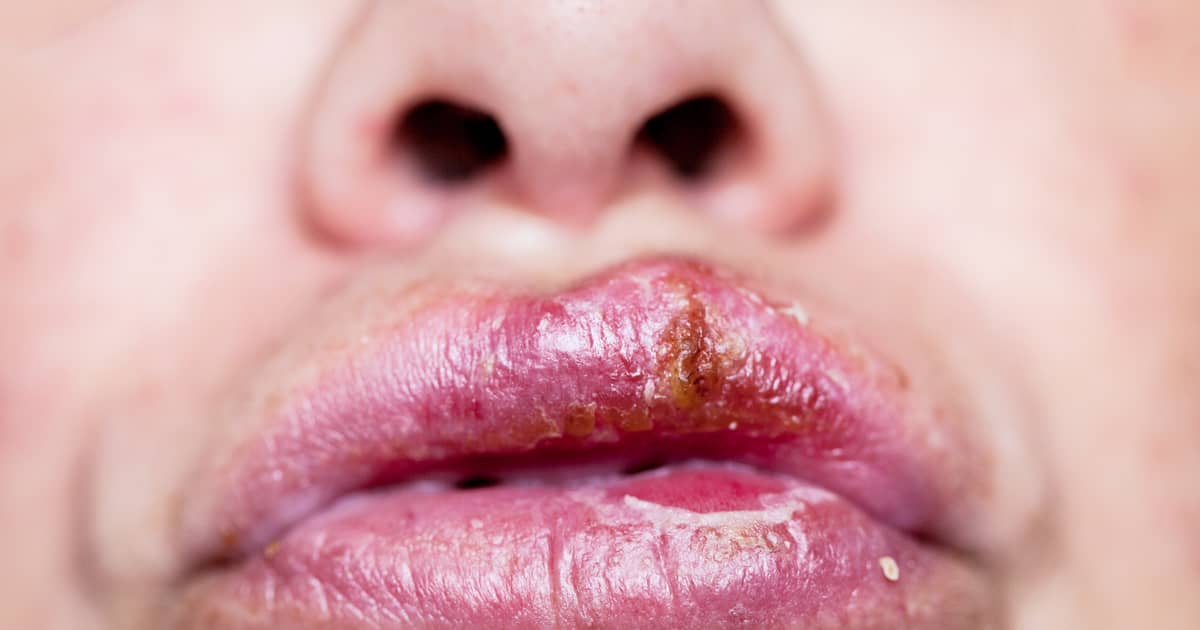A massive proportion of the world’s population is living with genital herpes, the World Health Organization (WHO) reports.
As per the latest WHO data, 491.5 million people have HSV-2 (also known as genital herpes). This means that 13.2 per cent of the world’s population aged 15 to 49 carries the infection. At the same time, 3.7 billion people (66.6 per cent) of the world’s population carries an HSV-1 infection. HSV-1 is also known as oral herpes but how does it differ from HSV-2?
Herpes Simplex Virus 101
The herpes simplex virus (HSV), as the data above suggests, is the cause of a very common sexually transmitted infection. There are two primary varieties of the virus and they spread via skin-to-skin contact.
The first variant is called Type 1 or HSV-1. HSV-1 spreads mainly through oral contact. That’s the reason why the virus is commonly called oral herpes. Interestingly enough, HSV-1 can also cause genital herpes.
HSV-2 or Type 2 is genital herpes. It spreads via sexual contact.
Both viral versions can cause the appearance of sores and blisters in the part of the body affected by the infection. For many people, however, herpes is going to be asymptomatic for very long periods of time. Given the fact that the majority of the world’s population has herpes, it’s easy to understand how this infection can be very sneaky and remain undetected for months and even years.
Are There Other Differences Between Oral and Genital Herpes?
HSV-1 usually causes oral and HSV-2 – genital herpes. Each viral strain prefers a certain part of the body, which is why it predominantly causes one type of infection or the other.
It is, however, possible for HSV-1 to get to the genitals and cause an infection there. If someone who has a blister (cold sore) on their lips and engages in oral sex with a partner, the likelihood of the infection spreading to the genital region is going to be high.
Giving oral sex to someone who has an active HSV-2 infection can result in oral herpes.
Keep in mind, however, that only HSV-2 is considered a sexually transmitted infection. Oral herpes can be acquired through kissing, sharing drinks, toothbrushes or even utensils. HSV-2 spreads through vaginal, oral and anal sex.
You are more likely to get infected if a partner has an active outbreak with blisters and lesions. Even if that’s not the case, however, the virus can pass on from one person to the other. Just because you’re both asymptomatic doesn’t mean you should engage in unprotected sex.
There is one final interesting difference between the two kinds of viruses and it pertains to the frequency of outbreaks.
Research suggests that genital herpes outbreaks caused by HSV-1 occur less frequently than the outbreaks caused by an infection in the same region with HSV-2. But the symptoms are going to always be the same. You’re not going to be capable of telling which strain of the virus you have, unless you go through a viral culture test in a lab.
How Are HSV-1 and HSV-2 Infections Treated
With such mild differences between the two viral strains, are there specific treatment courses or do both require the same protocol to mitigate the symptoms and make outbreaks less frustrating?
HSV-1 and HSV-2 are both caused by a virus, which is why they can be treated through a daily dose of antiretroviral medication.
People who get cold sores on their lips from HSV-1 can also benefit from over the counter topical medications. While such ointments are not going to eradicate the infection, they will reduce the severity and the duration of the symptoms.
Treatment for outbreaks of both HSV-1 and HSV-2 are most effective if started about 48 hours before symptoms appear. This period is known as prodromal phase. Before the sores appear, some people may experience symptoms like itching and burning in the infected area. That would be a definite sign of an outbreak, indicating the need for treatment initiation.
Treatment is not recommended for everyone who has oral or genital herpes. Rather, a doctor will assess the patient’s condition to determine whether antiviral therapy is warranted. Usually, medications are suggested for those who experience severe symptoms like really painful sores. Those who have frequent symptomatic episodes that reoccur often should also consider medications.
There is nothing shameful about having oral or genital herpes. It’s very important for the conditions to get destigmatised so that people can seek adequate and timely treatment.
If you are sexually active, getting tested for herpes is going to be a good first step, even if you’ve never had sores before. Some healthcare providers will be capable of diagnosing herpes by looking at sores. To get 100 per cent certainty, however, consider getting a blister swabbed for a viral culture.
Those who don’t have symptoms can obtain good results from a genital swab test. It will look for viral DNA and that can be achieved in the absence of sores.
Do you have questions about herpes simplex or are you interested in getting tested? Contact Shim Clinic now or visit us during working hours every day of the week.

